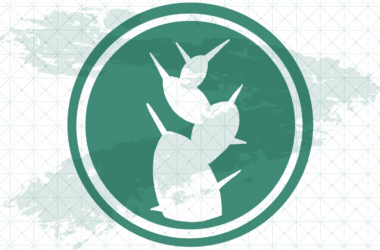The Tribune sat down with environmentalist Ciara Raudsepp-Hearne to talk about her recent publication “Untangling the Environmentalist’s Paradox: Why is Human Well-Being increasing as ecosystems degrade?” The author spoke about the impact that environmental degradation brings to human well-being.
What was the aim of your paper?
We, as environmentalists, assumed that ecosystem services would be degraded but that human well-being would be impacted by that degradation. The Millennium Ecosystem Assessment [found] the opposite: that human well-being was improving across all measures. And so we thought that we’d investigate that diversion trend a little bit more. So we set out to understand what the important links [are] between ecosystem services and human well-being.
What were your findings?
We found that we know a lot about how humans have impacted the environment but we know very little about how ecosystem change, mostly [through] degradation, affects human well-being. That is actually a very important thing to realize, because many people are not convinced that it is important to conserve the environment. They look around and they say, ‘We’re all doing very well, why should we care about the environment?’ We’re not trying to say that a concern for ecosystems is overblown. Our position is that risks to human well-being are increasing and so we may or may not have the capacity to adapt fast enough to rapid environmental change.
Could you explain the environmentalist’s paradox?
The environmental paradox is simply that ecosystem services are degrading across the board while human well-being is increasing. Our paper tries to explain why that may be. We have four hypotheses. One of them is that human well-being must be increasing. We discarded that hypothesis. The other three [all have] elements of truth to them. The second one, that food is the most important ecosystem service [and] is much more important to human well-being than any other service, is being degraded. There is some truth in that, but there is no evidence that the other services are not important. The third hypothesis is that technology and human ingenuity are enabling us to decouple ourselves in the environment—that because of medicine and technology and global trade we can adapt to environmental change and degradation and get past that. And there is some truth to that too, but it really is only staving off the effects. Whereas, the fourth hypothesis sort of explains the other three a bit better: that there is a time lapse between which ecosystem services are degraded and the impact actually occurs to human well-being. There is a lot of truth to that but we don’t know very much about where or when the impacts may occur in the future, how big they’ll be and how well we’ll be able to adapt to them.
Is there a lot more exploration and investigation that needs to be done into the specifics?
Definitely. We say very specifically where the investigation should occur and it has to do with the fact that we don’t need any more assessments that are showing what humans have done to the planet, we know that already. What we need to know is why ecosystems are very important for humans. We need to be able to make a better case for the better management of ecosystem services.
What are some examples of events lead people to think things are not as bad as they really are?
A very easy example is climate change. We’re having a huge impact on the climate and the ability of ecosystems to regulate the climate, but people look around and they see, ‘Well no, we seem to be growing enough food, we have enough water, it’s not too uncomfortable to live, so why should we act?’ Another example is fisheries. The global fish stocks are decreasing in almost all oceans and we see the limits now. We see collapses of particular fish species but because of global trade we are able to import fish from other parts of the world and an average person in Montreal can get as much fish as they want, so they don’t really see a problem. Whereas on the global scale, we see that in the next ten to twenty years there will be some major collapses in the fisheries.
What are some immediate signs that the average person can look to that shows how, in reality, the environment is doing?
The problem is that it is obvious when you look at any of the data that the environment is degrading. That is not really the issue. The issue is more how people interpret that degradation themselves. So the questions are about the human well-being not the degradation. In terms of an everyday sign of how the environmental degradation may affect an average person’s human well-being, it depends on where you live. A person in Montreal may feel hotter weather, some days they might be subjected to more storms, more natural disasters, but Montreal is quite protected. If you live near the Gulf of Mexico or in Sub-Saharan Africa, that’s already very subject to desertification, you’ll feel that much more strongly. So that’s one of the issues that the paper is really focused on. It’s the fact that those immediate signs are not right in front of your face if you live in a place like Montreal. But people all over the world are currently being affected [but] mostly the poor and the rural.









Pingback: Ecosystems degrade while human well-being improves | Kyla Mandel Portfolio